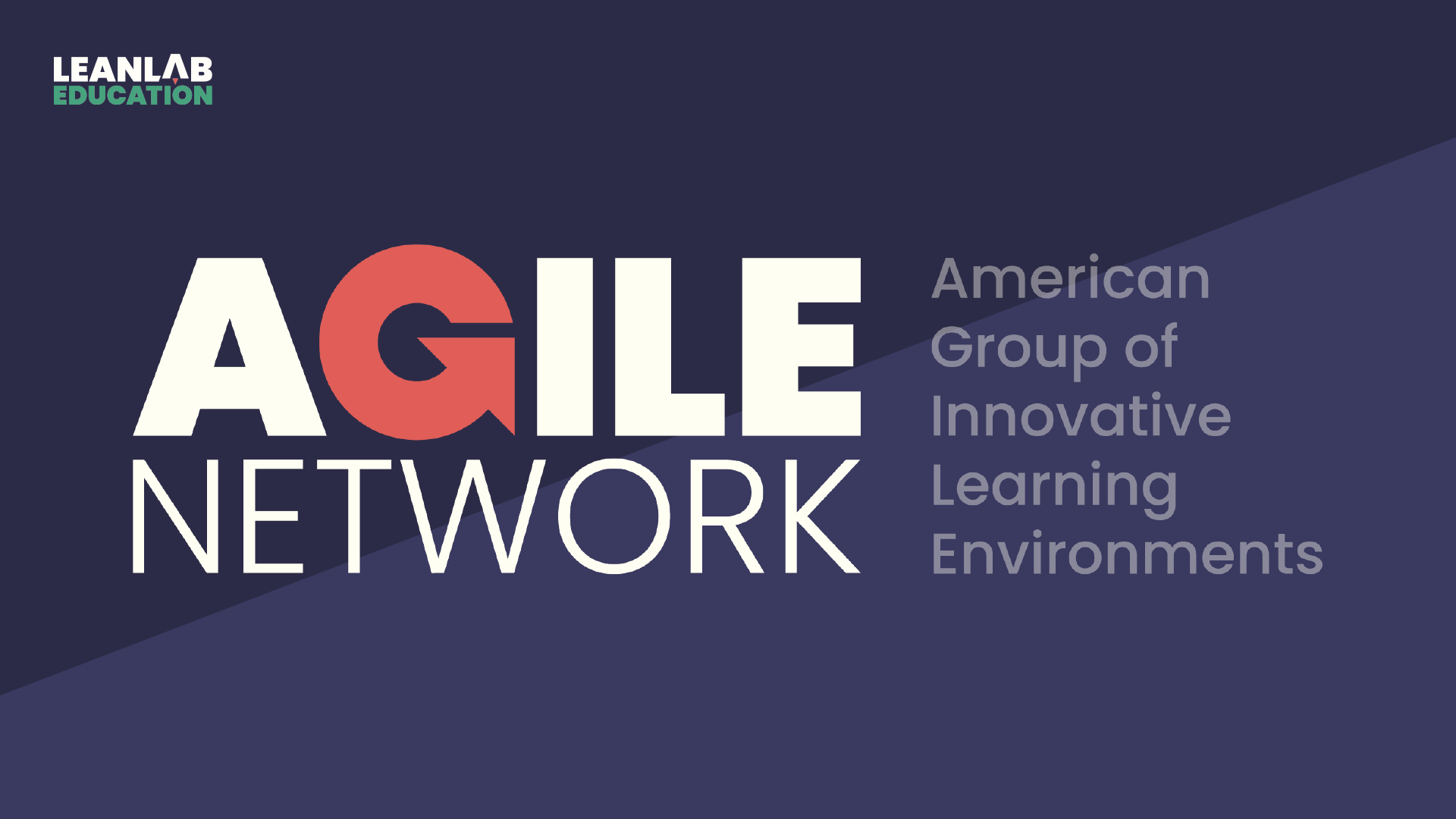The American Group of Innovative Learning Environments (AGILE) Network offers a centralized infrastructure for research, development, and evaluation.
Research nonprofit Leanlab Education launched the American Group of Innovative Learning Environments (AGILE) Network at ISTELive24 with members from learning environments across the country, including school systems, teachers, and non-traditional learning environments. Comprised of education communities on the cutting edge of innovation, the AGILE Network works to accelerate the pace of education research and development (R&D), while elevating historically underrepresented educator and student perspectives.
By leveraging a centralized infrastructure that facilitates “matching” between R&D opportunities—development of emerging technologies and research studies—and participating schools and educators, the AGILE Network aims to become a critical piece of American education R&D infrastructure, designed to keep pace with rapid development cycles in the private sector.
Member schools and educators influence the development and evaluation of emerging education solutions, including curriculum and technology—addressing a well-documented evidence shortage in the market. Studies in the 2024-2025 school year will cover topics including generative AI, literacy, assessment, and mathematical reasoning.
The AGILE Network represents the diversity of learning experiences in the United States, welcoming public districts, charter schools, independent schools, non-traditional environments like micro-schools, and individual educators. Twenty learning environments are joining the 2024-2025 cohort, including:
Academy for Integrated Arts (Missouri)
Allegiance STEAM Academy (California)
Astra Nova Schools (National)
Catalyst Schools (Illinois)
Distinctive Schools (Illinois)
Ednovate (California)
Limestone Community School (Kansas)
Milpitas Unified School District (California)
Oak Ridge Schools (Tennessee)
Prisma Online School (National)
Of the new network, Leanlab Education Founder and CEO Katie Boody Adorno shared, “The AGILE Network will reduce barriers to engage school communities in the co-development and co-design of emerging technologies with researchers. By systematically elevating school community perspectives, we believe we will accelerate the pace of breakthroughs in the field of teaching and learning.”
Following the kickoff convening, Kevin Nham from Ednovate remarked, “I’m looking forward to partnering with edtech companies to develop tools that will truly impact student achievement.” Catalyst Schools’ Nick Tomasso added, “I’m excited about opportunities to grow in my own practice by collaborating with like-minded educators.”
The AGILE Network is a collective action initiative and builds on a decade of Leanlab Education’s leadership bringing together learning communities and education technology companies to co-design, co-develop, and study education innovations. The AGILE Network framework was developed through a planning grant with InnovateEDU and the Center for Education Market Dynamics (CEMD) and is based on the guiding Tenets and Principles published by the Global Edtech Trialing Network.
Advanced Education Research and Development Fund (AERDF), the world’s first Advanced Inclusive R&D organization dedicated to scientific discovery and invention for PreK-12 education, is a founding partner, contributing essential R&D infrastructure expertise, resources, and advanced R&D projects currently seeking breakthroughs in reading, executive function and math, and assessment. “The AGILE Network serves a critical need to enable education R&D to actually be inclusive and done with educators,” said Chris Liang-Vergara, Chief Learning Officer at AERDF.
Digital Promise and ISTE are contributing network partners, nominating qualifying educators and school districts, and supporting inclusive innovation convenings. Initial funding was provided by the Siegel Family Endowment and Walton Family Foundation, among others. Education, nonprofit, and supporting partners are expected to increase following the pilot year of the network.

